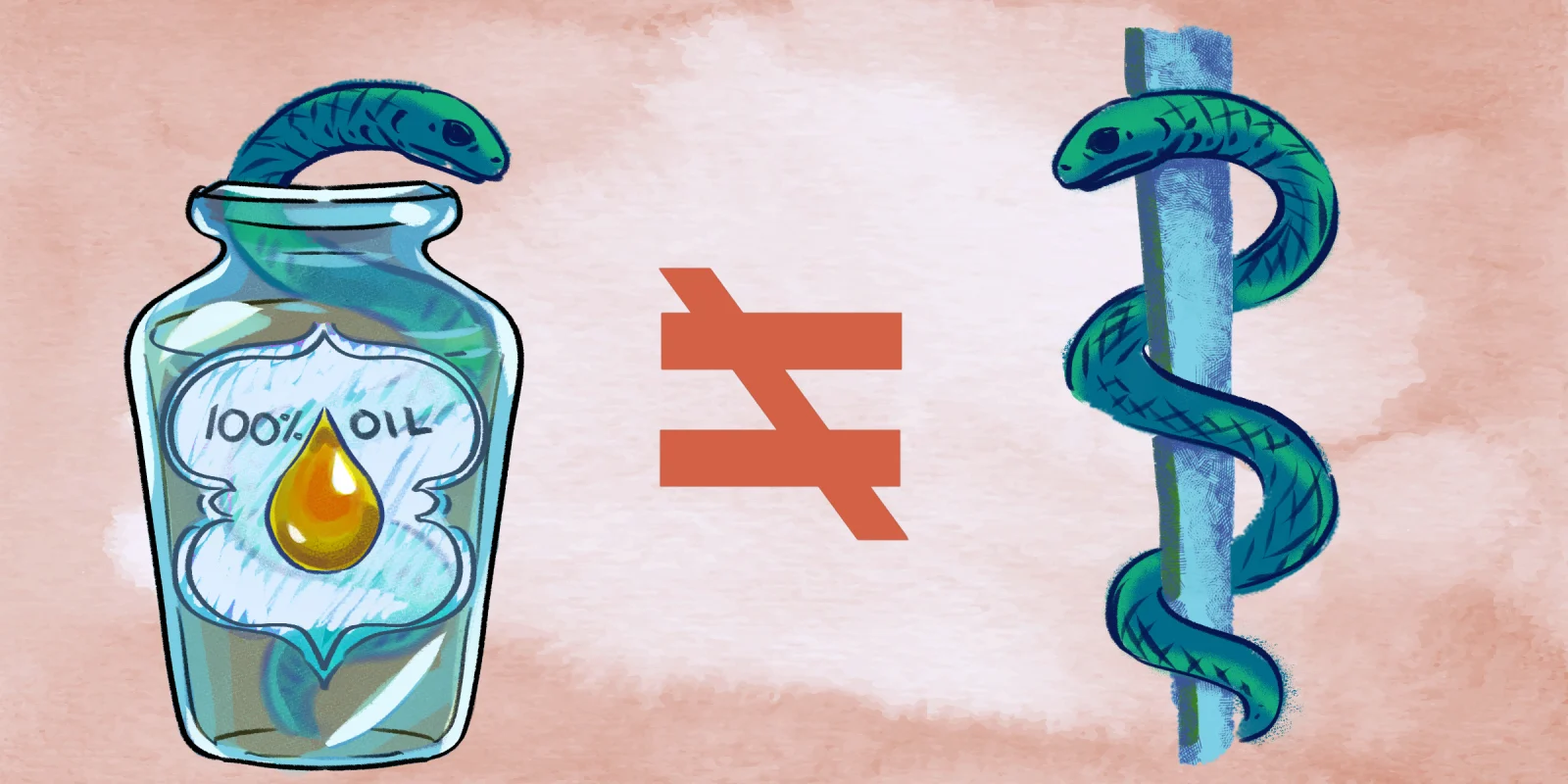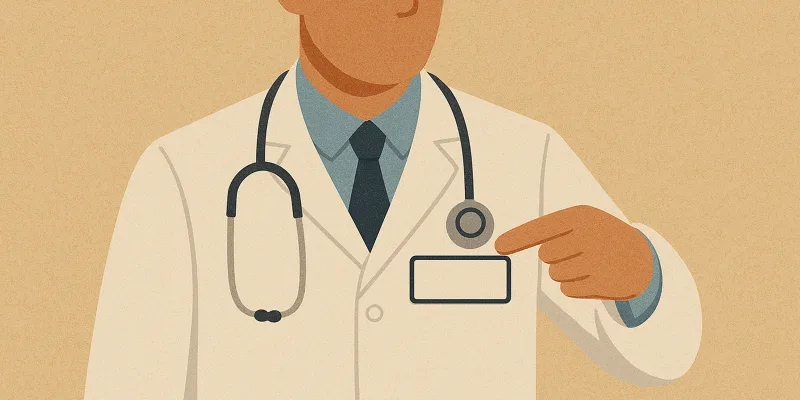A patient came to me who had felt the need to pursue alternative cancer therapy in a different state. She was advised by the alternative therapy practitioner to not pursue full-dose chemotherapy or CT scans while on the alternative therapy, which possibly included a drug sourced from the international black market. The explanation she was given was that chemotherapy or radiation would interfere with the alternative therapy. Additionally, I was shocked to hear that she was told that her rising serum tumor markers were expected (though she had been on treatment for many months). Despite my attempts to correct this fallacy, it caused her to believe that her cancer was not worsening, while delaying the standard of care. Meanwhile, she became malnourished and severely anemic, and her PCP and evidence-based oncologist were left to align the puzzle pieces for her care. They prescribed TPN and blood transfusions, even while she chose to continue her alternative therapy.
Regrettably, this story is far from unique.
I find this mortifying. I’ve thought about this patient at length, her situation keeping me up at night. It’s caused me to worry about other patients under my care who might be harmed by “alternative therapy” – anything from misbranded or mislabeled to non-evidence-based to unregistered experimental use of vitamins, dietary supplements, or drugs. For example, intravenous vitamin C is not FDA approved for the treatment of cancer.
When patients feel frustrated by stagnant options or disappointing prognosis in a conventional medical setting, they are vulnerable to financially predatory practitioners wielding false hope and misleading advertising. In hopes for a cure to late-stage cancer or other poor prognoses, many patients are willing to pay tens or hundreds of thousands of dollars and suffer bankruptcy.
While I was trying to help this patient with her cancer care, I also knew that this practitioner of hers was likely causing harm to other patients. In researching him, I found that he advertises experimental drugs and publishes ambiguous research outcomes on his website, despite no mention of informed consent, IRB approval, Investigational New Drug status, registered clinical trials, or peer-reviewed publications. Unfortunately, IRB records are not publicly available or centralized; and in my experience, IRBs vary in their level of scrutiny.
The alternative therapy practitioner also did not respond to multiple requests for this patient’s medical records. Not only did this interfere with our ability to provide her care, but intentional avoidance is illegal and can be reported to the ONC as information blocking. Of note, patient signatures are not required on record requests for continuity of care, per HIPAA.
I knew there had to be something I could do.
To learn more, I connected over the phone with a pharmacist at the FDA, who informed me that anyone can easily report unlawful/unethical research, unlawful promotions, and biased drug advertisements to the FDA via email (druginfo@fda.hhs.gov and badad@fda.gov). You can request anonymity and choose if you want to be involved in follow-up questions. The FDA will then investigate and use specific enforcement actions to “correct and prevent violations, remove violative products or goods from the market, and punish offenders.” This can include criminal prosecution in the form of imprisonment and fines of up to $500,000 per offense. You can also report adverse effects of FDA-regulated drugs and devices to the FDA’s public database, MedWatch. Additionally, you can report non-compliant research to the Office for Human Research Protection via complaints.ohrp@hhs.gov.
Although bureaucratic processes may be slow and lenient, we should also report individual practitioners to their respective state boards. These forms typically require the name and contact info of the person filing the report. But even with diligent physicians reporting problematic clinicians, some boards will scrub mention of violations from their websites after a set number of years. Personally, I found historical records on Quackwatch, a website with a “focus on health frauds, myths, fads, fallacies, and misconduct,” operated by a non-profit called Center for Inquiry (based in New York and DC).
To better prepare the next generation of physicians to recognize inappropriate care, we can advocate for medical school curricula to include education on these topics. We can utilize resources such as this FDA video on drug promotion and teach critical appraisal via FDA’s educational case studies. Advocacy can also focus on standardizing naturopaths’ scope of practice and drug formulary, which currently varies by state. While naturopathic doctors require a license, anyone can practice unlicensed homeopathic consulting or healing arts services. Regarding self-promotion and financial profit, we can also advocate to expand federal regulation prohibiting physician self-referral under the Stark Law, which currently applies to CMS recipients only, and the Anti-Kickback statute applies to anyone receiving federal dollars.
Despite the existence of scathing, detailed online reviews by patients, to my knowledge, there is no active surveillance of exploitative practitioners by government agencies. While we can hope for timely and effective institutional oversight, we may find ourselves as the initial cogs in the wheel of justice. The alternative is that we let patients endure the fallout of unhinged medical capitalism and complain about it during our coffee breaks — your call. Though she may never realize or thank me, the victimization of my patient (and many more) reminded me that I took an oath to do no harm — that can mean preventing harm to patients, too.
Have you ever encountered a "quack"? What did you do?
The author is an internist in the Southwest.
Illustration by April Brust






